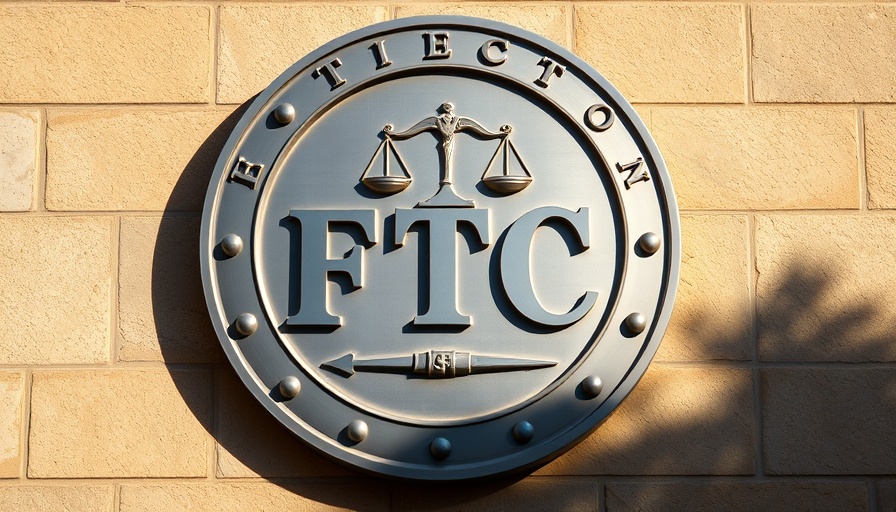
FTC Regulation: A Shift in Health Claims Enforcement?
The Federal Trade Commission (FTC) has long been the watchdog of health-related claims in advertising, mandating that any health statements made by companies must be substantiated by credible evidence. Recent developments, however, point towards a potential upheaval in these standards. A lawsuit initiated by Nathan Jones, the founder of Xlear, is challenging this norm, aiming to allow companies to freely promote their products without the stringent backing of scientific proof. This could be a monumental shift not just for the FTC but for the entire health and wellness landscape.
The Crucial Role of Evidence in Health Marketing
For decades, consumers have relied on the FTC to ensure that marketing claims are not just aspirational but grounded in solid scientific evidence. From preventing fraud to maintaining standards, the regulatory body serves an essential function in protecting public health. The agency has taken action against numerous companies marketing unverified health products, fostering a semblance of trust in the industry.
As noted by Mary Engle, a former associate director of the FTC, if Jones’ lawsuit succeeds, it could undermine the very principles that have guided consumer protection for years. Health claims could be made with less oversight, potentially placing consumers at risk. The debate seems as much about consumer choice as it is about public safety.
The Influence of the “Medical Freedom” Movement
The current political climate, particularly under the Trump administration, has seen a loosening of regulations and enforcement actions related to health products. Advocates for the “medical freedom” movement argue for less governmental control over personal health choices. Supporters of Jones, including members of the Alliance for Natural Health USA, have welcomed changes brought by new leadership, hoping to reclaim what they see as unjust restrictions imposed by the FDA and FTC. They believe that consumers should have more options when it comes to managing their health.
However, this posits a significant question: Are consumers adequately equipped to make informed choices without the aid of regulatory oversight?
Consequences of Diminished Regulatory Power
If the FTC’s regulatory power is weakened, the repercussions could be extensive. The supplement industry, which is currently valued at $70 billion, could spiral into a realm where health claims are less scrutinized, leading to a proliferation of misleading marketing. As the government grapples with limited resources and workforce, the challenge of monitoring this vast industry raises alarming concerns.
Alternatives to traditional medicine are gaining traction, with supplements and holistic remedies becoming more popular. Yet, without stringent measures to back the advertising, consumers could be left vulnerable to false claims. Market safeguards that were once firmly established might be stripped away, leaving consumers to navigate a jungle of potentially harmful products.
From Policy to Practice: What Can Be Done?
In response to these emerging threats, what pathways can health officials and consumers explore to ensure that integrity and trust remain central within the health market? There is a pressing need for updated regulations that keep pace with innovations in health technology, while also protecting the interests of consumers. Enhanced consumer education and reporting mechanisms may help bridge the gap created by any potential lapses in regulatory oversight.
Future Implications for the Supplement Industry
As health technologies evolve, it's crucial to examine how the market adapts. Will increased claims lead to innovation, or could it foster exploitation? It’s a precarious balance that must be struck between allowing room for advancement and ensuring community safety. This is where the intersection of technology and wellness becomes vital.
Potential trends include better tracking of health claims through technology, advanced consumer education strategies, and possibly, collaborative efforts between supplement manufacturers and regulatory bodies to establish more flexible yet sufficient frameworks.
Actionable Insights for Businesses
CEOs and marketing managers in health-related industries must stay ahead of these changes. It’s imperative that businesses develop marketing strategies that not only comply with regulations but also prioritize ethical advertising. Educating consumers about their choices can also foster loyalty and trust within a rapidly evolving market.
Final Thoughts
As the possibility of diminished FTC oversight looms, it’s essential for both consumers and businesses to engage in open discussions about the integrity of health claims. This debate is not just about regulation—it’s about ensuring a healthy future for all stakeholders involved. Given the importance of health in our daily lives, proactive engagement in this evolving conversation is necessary now more than ever. Stay informed and advocate for your choices to ensure a safe, transparent marketplace.
 Add Row
Add Row  Add
Add 




Write A Comment